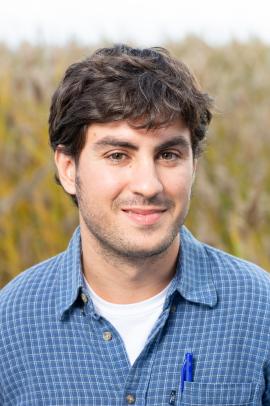Ruiz Cayuela, Sergio
Rachel Carson Center for Environment and Society, Ludwig-Maximilians-Universität München (LMU), Germany
Research Interest
My research is framed into my personal commitment to fighting for social and environmental justice. I do so by working closely with communities in ways that go beyond the classical object-subject studies and involve local stakeholders in the knowledge production process. My theoretical approach is close to urban political ecology, but at the same time is enriched by other disciplines such as environmental humanities or ecological economics. As a member of the RECOMS project, I explore the ways in which communities along urban waterways can be empowered to embrace resourceful, resilient, and fair environmental practice by unlocking social, economic, environmental and/or political constrains. My main goal is analysing the co-creation of urban post-industrial waterways and nearby communities, and using these insights to inform ongoing commoning practices so they can successfully counter privatisation dynamics in an inclusive, collaborative and ecologically responsible way.
Biography
I have a background in civil engineering. After two years working at the renewable energies sector, though, I decided to go back to college and started an MSc in Sustainability Science and Technology at UPC-Barcelona Tech. I coursed the second year of my Master's degree at KTH in Stockholm, Sweden. I wrote my Master's thesis at the KTH Environmental Humanities Laboratory (EHL) under the supervision of professor Marco Armiero. Thus far, I have been able to present the results of my thesis, titled "Rejecting Fate: the challenge of a subaltern community to the creation of a sacrifice zone in Can Sant Joan, Catalonia", in three international conferences and two articles in peer-reviewed journals (currently in press). During the academic year 2017 and 2018 I was based at the EHL, where I managed the environmental literacy project "Stories and Seeds" and collaborated in the guerrilla narrative project "Toxic Bios".
Project summary
"Commoning Urban Waterways" (CUW) aims to explore urban canals and their potential to be reclaimed by subaltern communities to become commons. Our understanding of waterways is framed into the tradition of urban political ecology, in line with a politicised approach to the commons as a tool for challenging structural inequalities. CUW aims at producing not only academic knowledge, but also positive social change. In order to achieve this, the researcher will be involved first-hand within the phenomena studied, in an approach known as “scholar-activism”. Fieldwork will consist of two case studies: tentatively the Coventry Canal around Stoney Stanton Road (Coventry, UK) and the Rec Comtal (Catalonia). Both canals constitute important examples of historic and cultural heritage, while holding high environmental value. This project will look at the interaction between the waterways and the surrounding subaltern communities, and how they can be empowered to reclaim and govern water infrastructures as a commons. Special attention will be paid to interactions among different spatial scales and levels of governance, including internal heterogeneities in the studied communities.
